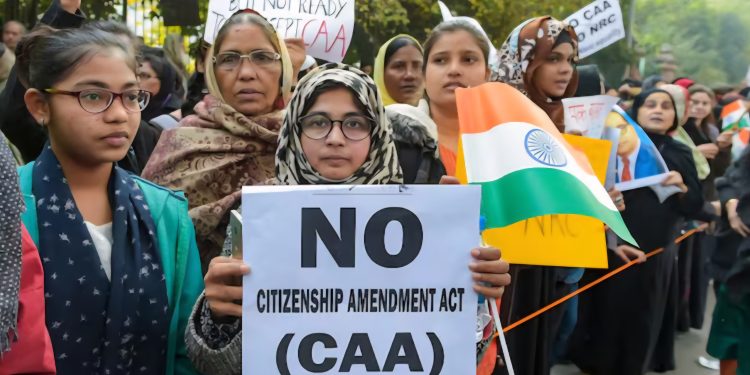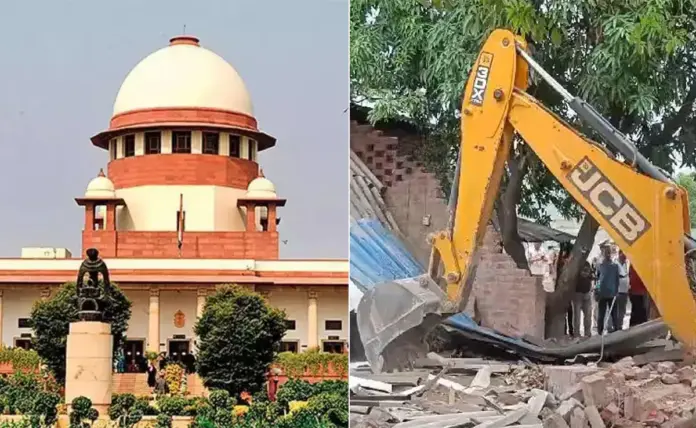Without delving into the constitutional or legal merits of the Citizenship Amendment Act (CAA), this write-up seeks to address a widespread concern that Indian Muslims may lose their citizenship, become stateless and be deprived of fundamental rights as a result of its implementation.Origins of FearThis fear has largely been fueled by the perceived combined impact of five initiatives:1. The Citizenship Amendment Act (CAA)
2. The National Population Register (NPR)
3. A possible nationwide National Register of Citizens (NRC)
4. Amendment in the Registration of Birth & death act 2023
5. The latest Special Intensive Revision (SIR) carried out by Election Commission of India in BiharThese concerns triggered in the past nationwide protests started in December 2019. Significantly the first draft of Assam NRC was published on July 31, 2018, well before CAB was introduced in Parliament on December 9, 2019.
Since then, I have consistently shared presentations and written articles both in newspapers and on social media to clarify the misconceptions. Despite a temporary lull, similar anxieties are now resurfacing online. Social media is once again advising Muslims what documents to prepare and how to fill out forms some even advocating resistance to official data collection exercises.In this context, it is pertinent to highlight the following facts:
1. Citizenship Amendment Act (CAA)
It does’nt apply to Indian Muslims, offers a path to citizenship for persecuted religious minorities Hindus, Sikhs, Buddhists, Jains, Parsis and Christians from Pakistan, Bangladesh and Afghanistan who entered India on or before Dec 31, 2014.
2. National Population Register (NPR)
During NPR data collection, no identification documents are required. Citizens cannot be marked as ‘doubtful’ based on their responses. It is purely a data-collection exercise and does not affect citizenship.
3. National Register of Citizens (NRC)
Contrary to popular belief, Government of India has not announced a nationwide NRC. Neither the President nor the Prime Minister has made such a declaration, inside or outside Parliament. The Home Minister once made a statement in Parliament suggesting a possible NRC, later clarified multiple times both in Parliament and through press release issued by MoHA that there is no plan for implementation of nationwide NRC.No Indian Muslim Will Lose Citizenship
Citizenship of Indian Muslims is protected under existing laws per se. Nonetheless if the eligibility of citizenship needs to prove as per Citizenship Act, if a person born in India on or after Jan 26, 1950 shall present any one of the documents from the following (List A) or (List B) :LIST A
1.NRC List of 1951
2.Electoral Roll up to June 30, 1987
3.Land & Tenancy Records
4.Passport
5.LIC Policy
6.Government-issued License or Certificate
7.Government Employment Certificate
8.Bank or Post Office Accounts
9.Birth Certificate
10.Board/University Certificate
11.Court RecordsIf personal documents are unavailable, they may provide any one of the following related to their father, mother or ancestors :LIST B
12.Birth Certificate
13.Land Document
14.Board/University Certificate
15.Bank/LIC/Post Office Records
16.Panchayat Certificate (for women as proof of marriage)
17.Electoral Roll
18.Ration Card
19.Any other legally acceptable documentI. Born in India on or after Jan 26, 1950 but before July 1, 1987 is an Indian citizen by birth per se irrespective of the nationality of her/his parents. The document requirement remain the same as aboveII. Born between July 1, 1987 & Dec 2, 2003, one of the parents must be Indian citizens. Document requirements remain the same as above.III. Born on or after Dec 3, 2004 both parents must be an Indian citizens or atleast one parent must be Indian citizen and the other is not an illegal immigrant at the time of birth. Again, the same documentation applies.Lessons from Assam NRC and Political ShiftThe implementation of Assam NRC revealed unforeseen results. The final list published on Aug 31, 2019, excluded larger number of Hindus than Muslims. While only 2% of Muslims were excluded, the figure was 6–7% among Hindus. This result led to significant shift in BJP’s stance, especially given that the process was supervised by the Supreme Court through its appointee, Prateek Hajela.The CAB was not even significant campaign issue of BJP during 2014 or 2019 Lok Sabha elections. Its national relevance was artificially inflated after Ayodhya verdict, leaving the “Hindutva agenda” politically dry. The CAB was then introduced as a fresh polarizing tool to distract from real issues such as economic slowdown and the Kashmir humanitarian crisis and to create panic, particularly among Muslims.Unfortunately, many Indian Muslims, out of fear, have unknowingly amplified this narrative on social media, unintentionally helping adversarial forces. But unlike other Hindutva-driven agendas, the NRC is fraught with administrative, legal and political challenges.
Major Challenges to Nationwide NRC Implementation1. NRC in Assam was linked to 1985 Assam Accord, which arose from a unique political context. It was implemented under Supreme Court’s supervision starting in 2013 before the BJP’s rise to power.
2. Cross-border diplomacy especially with Bangladesh poses another hurdle. India has no extradition treaty with Bangladesh and a humanitarian crisis resulting from mass exclusions could damage bilateral relations.
3. As the Home Minister himself stated, CAA and NRC are separate. If NRC were to be implemented nationwide, every citizen, regardless of religion, would first need to submit proof of citizenship. Non-Muslims unable to prove their citizenship would then be required to show evidence of religious persecution a difficult, if not impossible, task.
4. Even some illegal or undocumented Muslims may manage to procure documents through corrupt means, rendering the NRC process ineffective.
5. BJP is aware of the limited public appeal of NRC. Hence, it attempts to build hype and fear using social media as a tool of mass persuasion.
6. Assam’s NRC outcome nullifies the communal angle. If only 2% Muslims are left out nationwide, the CAA’s intended political advantage collapses.
7. Nationwide NRC would incur astronomical costs. The Assam NRC cost around ₹1,800 crore, which is now deemed wasteful. If 19 lakh people file appeals in Foreigners’ Tribunals, costs will rise further.
8. Detention Centres pose a massive logistical and financial challenge. If even one crore people are excluded, about 3,000 centres, each with 3,000 capacity, would be required complete with schools, hospitals, and other basic infrastructure.Conclusion
There is an urgent need to dispel fear and refrain from spreading unverified messages about nationwide NRC on social media or public forums. Misplaced panic only strengthens the very narrative it seeks to resist.
I welcome the granting of Indian citizenship to persecuted minorities from the specified countries. However, I sincerely urge the Bharatiya Janata Party not to pursue a nationwide NRC, as it carries serious political, diplomatic, economic and social risks that could ultimately undermine the party’s own future.






